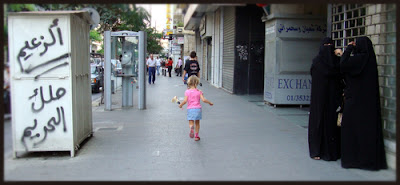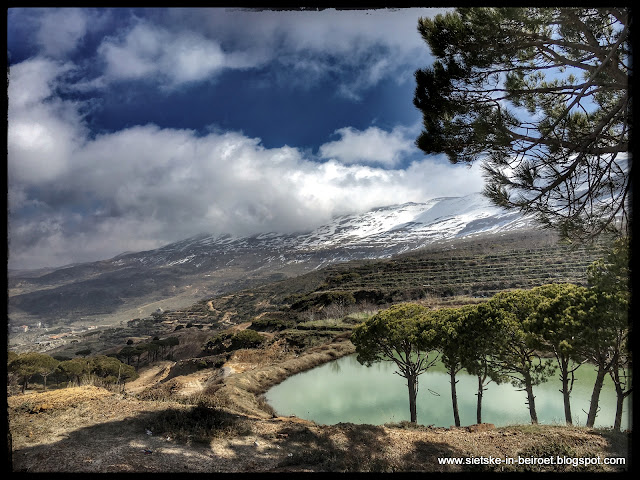 Clouds gather above the mountains
Clouds gather above the mountains
I wonder how – in fifty years from now – people will look back on the period we currently live in. ‘Couldn’t they have seen it coming’, they may ask?
I don’t know what’s coming, so I can’t tell you, but things are not looking good right now. I’ve been blogging since February 2005 - which in retrospect seems to be the date when the future changed for this country -, and although I’m always positive, I can’t say I’m writing a whole lot of optimistic stuff about this place. So if you’d reread me in fifty years, you could say that I felt that something was changing. I don’t know what the near future holds for Lebanon, but I’m not holding my breath.
Maybe it is because I live with someone who predicts doom. But when you talk to friends, the overall tone is pessimism. Whenever you hear someone say they got a job abroad, the reaction is ‘lucky you!’ A friend that married a foreigner and moved to her husband’s country was told ‘at least you’re out of this place.’
Some time ago, in early 2006, I was speaking to a colleague, when he mentioned he had recently interviewed Sleiman Frangieh and that Frangieh had told him they were back in the business of buying arms.



A pumpkin patch (It's almost Halloween)
After the civil war all militias (except Hezbollah) handed in their weapons and continued life as official political parties with seats in the parliament.
And then yesterday I read this; ‘In Lebanon, Mr. Suleiman Franjieh, a Christian opposition leader, was blunt. He told Assafir that his Marada party was arming to prevent another Ehden & Safra massacre. (The one the took the life of his family back in the civil war)’ at this blog.

On the same road; an 'umbrella' pine forest.

Hezbollah of course never stopped, and is – according to Israel, for what it’s worth – stronger then it was before the 2006 summer war. And now it seems that the druze of Joumblat, and the other druze contingent of Arslan, the sunni Future Movement of Hariri, and the Christians with Aoun are also in the market of some assault type equipment.
In some cases training camps are mentioned, and Aoun’s (as always) people got caught on camera in full regalia, complete with camouflage paint, which the party dismissed as just’ having fun and playing around.’
 The only ladies wearing the facial veil (see side right of picture) are tourists from the Gulf countries.
The only ladies wearing the facial veil (see side right of picture) are tourists from the Gulf countries.
It would be such a pity. This place is so special. Nevertheless, its’ better to be prepared, in case the ship really sinks.











 And while you are pondering over the mysteries of Lebanese life, go figure this one out; which one came first; the lamppost or the awning?
And while you are pondering over the mysteries of Lebanese life, go figure this one out; which one came first; the lamppost or the awning?





